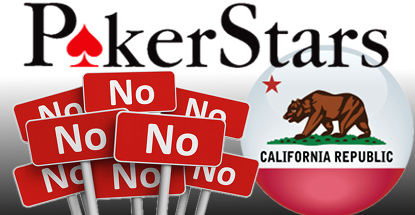 PokerStars’ California-based coalition has publicly stated its opposition to the online poker legislation introduced this week by Assemblyman Mike Gatto. The coalition, which includes three card clubs and the Morongo and San Manuel Indian tribes, plans to partner on a California-facing online poker site. Problem is, a different coalition of the state’s other tribes are determined to keep Stars out and Gatto’s AB 9 legislation is basically a modified version of the bill these other tribes put forward earlier this year.
PokerStars’ California-based coalition has publicly stated its opposition to the online poker legislation introduced this week by Assemblyman Mike Gatto. The coalition, which includes three card clubs and the Morongo and San Manuel Indian tribes, plans to partner on a California-facing online poker site. Problem is, a different coalition of the state’s other tribes are determined to keep Stars out and Gatto’s AB 9 legislation is basically a modified version of the bill these other tribes put forward earlier this year.
AB 9 contains the now standard prohibition on ‘bad actors’ i.e. any company that accepted US wagers after Dec. 31, 2006. Critics believe such prohibitions have less to do with law and order than with other operators not wishing to compete with the Stars juggernaut.
On Friday, Stars’ coalition released a statement calling the new bill “a rehash of previously unsuccessful proposals.” Stars’ statement says any bill that “seeks to establish artificial competitive advantages for some, while denying Californians the best online poker experiences, will only serve to divide the community and will be opposed by our coalition.” Stars says it is committed to working with legislators to pass a poker bill in 2015 that establishes a “vibrant, competitive marketplace.”
AB 9 bars not only bad actors but also their ‘covered assets’ i.e. software, brands, etc. Stars’ new owner Amaya Gaming maintains that its purchase of these assets has wiped clean their bad actor taint, but AB 9 includes language that upholds the prohibition even if ownership of the assets changes.
AB 9 does contain a clause that allows an online poker license applicant the chance to offer “clear and convincing evidence” that their use of the assets in California won’t “adversely affect the integrity of, or undermine public confidence in” the state’s online poker market.
Some industry observers are interpreting this as all the wiggle room Amaya needs in order to get its foot in the door. Amaya’s statement suggests it either doesn’t share this view or it doesn’t want to leave anything to chance, i.e. throwing its support behind AB 9 only to have the state’s gatekeepers arbitrarily decide Amaya’s evidence was neither clear nor convincing.
The Poker Players Alliance (PPA) has offered its own objections to AB 9, with executive director John Pappas saying the bill has “too many flaws right now to support it.” Pappas says the PPA believes California “should open it up to all possible participants” because “the more applicants, the greater the potential for a better product.”
